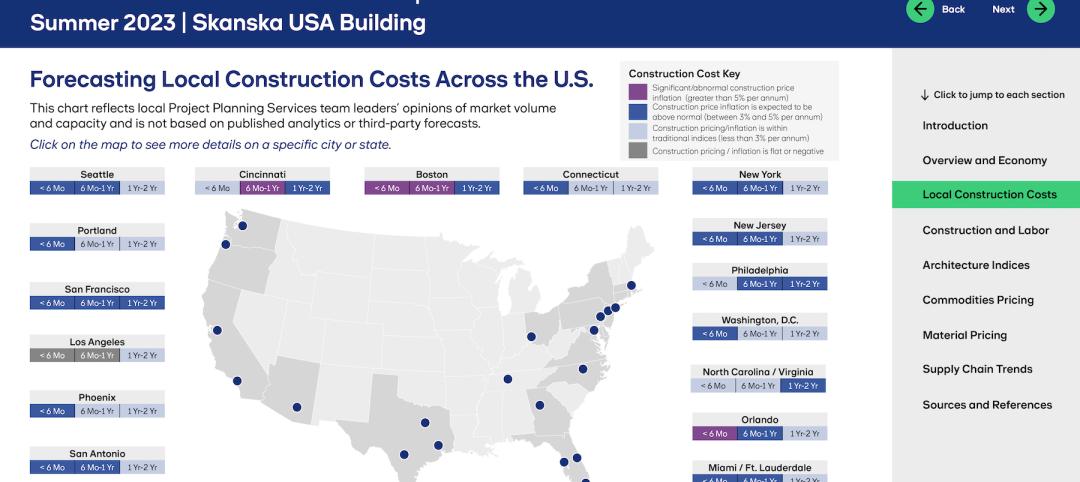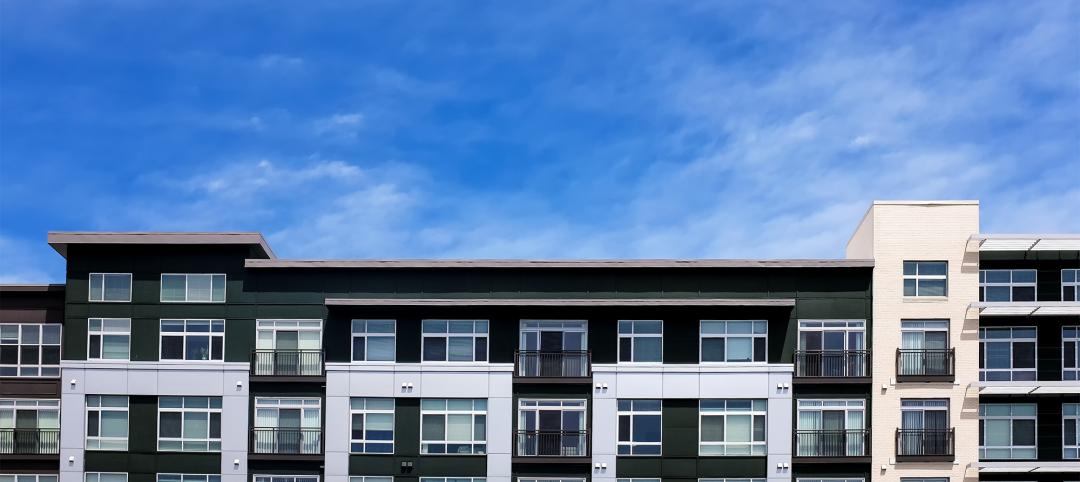A new survey by the American Institute of Architects (AIA) finds that a large majority of Americans (83%) consider public buildings—schools, libraries, community centers, and parks—part of their community’s infrastructure. And, 94% of those surveyed say that having well maintained public buildings are important to the future of their community.
In a key finding for policy makers, 83% of survey respondents agreed that investment in these public buildings is just as important as investment in roads and bridges. The survey also found that seven in 10 Americans want their public buildings renovated, and almost three-quarters of Americans consider public schools in good condition a “must have” in the communities in which they live.
These are some of the major findings of the first-ever AIA survey of American attitudes toward essential community buildings. The survey results, conducted by The Harris Poll, were made public today at the AIA Build America Summit.
Major survey findings:
- More than three in four Americans (78%) think their local government should take some financial responsibility for supporting the investment in their public buildings. Just under two-thirds (61%) think state government should take some financial responsibility. A majority (53%) think that community members should support it, and almost half (46%) believe private entities should also invest.
- A majority of Americans believe that the condition of community buildings can lead to notable benefits, particularly higher property values (60%) and improved quality of education (62%).
- 69% of Americans believe schools are one of the most important buildings to receive a consistent level of public funding.
- On average, Americans feel about one third (34%) of public funds budgeted for community features should be allocated to public buildings and/or spaces. Of the remaining, they would allocate 37% to transportation and 29% to public housing.
- Significant gender differences exist in attitudes toward public buildings and spaces. For example, women are more inclined than men (44% to 34%) to consider public housing options a “must have.” Conversely, older men (44%) place the most emphasis on funding transportation.
- Almost half those surveyed (48%) believe public housing (defined as a combination of senior and affordable housing) is one of the most important community features to receive a consistent level of public funding.
“It is clear from the survey that Americans consider investment in community buildings and spaces a priority,” said AIA CEO Robert Ivy, FAIA. “Not only do they believe that that investment would lead to improvements in property value, education, and public safety, but also serve to attract new businesses and enhance their overall quality of life.”
A copy of the survey results can be found here.
Related Stories
Apartments | Aug 22, 2023
Key takeaways from RCLCO's 2023 apartment renter preferences study
Gregg Logan, Managing Director of real estate consulting firm RCLCO, reveals the highlights of RCLCO's new research study, “2023 Rental Consumer Preferences Report.” Logan speaks with BD+C's Robert Cassidy.
Market Data | Aug 18, 2023
Construction soldiers on, despite rising materials and labor costs
Quarterly analyses from Skanska, Mortenson, and Gordian show nonresidential building still subject to materials and labor volatility, and regional disparities.
Apartments | Aug 14, 2023
Yardi Matrix updates near-term multifamily supply forecast
The multifamily housing supply could increase by up to nearly 7% by the end of 2023, states the latest Multifamily Supply Forecast from Yardi Matrix.
Hotel Facilities | Aug 2, 2023
Top 5 markets for hotel construction
According to the United States Construction Pipeline Trend Report by Lodging Econometrics (LE) for Q2 2023, the five markets with the largest hotel construction pipelines are Dallas with a record-high 184 projects/21,501 rooms, Atlanta with 141 projects/17,993 rooms, Phoenix with 119 projects/16,107 rooms, Nashville with 116 projects/15,346 rooms, and Los Angeles with 112 projects/17,797 rooms.
Market Data | Aug 1, 2023
Nonresidential construction spending increases slightly in June
National nonresidential construction spending increased 0.1% in June, according to an Associated Builders and Contractors analysis of data published today by the U.S. Census Bureau. Spending is up 18% over the past 12 months. On a seasonally adjusted annualized basis, nonresidential spending totaled $1.07 trillion in June.
Hotel Facilities | Jul 27, 2023
U.S. hotel construction pipeline remains steady with 5,572 projects in the works
The hotel construction pipeline grew incrementally in Q2 2023 as developers and franchise companies push through short-term challenges while envisioning long-term prospects, according to Lodging Econometrics.
Hotel Facilities | Jul 26, 2023
Hospitality building construction costs for 2023
Data from Gordian breaks down the average cost per square foot for 15-story hotels, restaurants, fast food restaurants, and movie theaters across 10 U.S. cities: Boston, Chicago, Las Vegas, Los Angeles, Miami, New Orleans, New York, Phoenix, Seattle, and Washington, D.C.
Market Data | Jul 24, 2023
Leading economists call for 2% increase in building construction spending in 2024
Following a 19.7% surge in spending for commercial, institutional, and industrial buildings in 2023, leading construction industry economists expect spending growth to come back to earth in 2024, according to the July 2023 AIA Consensus Construction Forecast Panel.
Contractors | Jul 13, 2023
Construction input prices remain unchanged in June, inflation slowing
Construction input prices remained unchanged in June compared to the previous month, according to an Associated Builders and Contractors analysis of U.S. Bureau of Labor Statistics Producer Price Index data released today. Nonresidential construction input prices were also unchanged for the month.
Contractors | Jul 11, 2023
The average U.S. contractor has 8.9 months worth of construction work in the pipeline, as of June 2023
Associated Builders and Contractors reported that its Construction Backlog Indicator remained unchanged at 8.9 months in June 2023, according to an ABC member survey conducted June 20 to July 5. The reading is unchanged from June 2022.
















